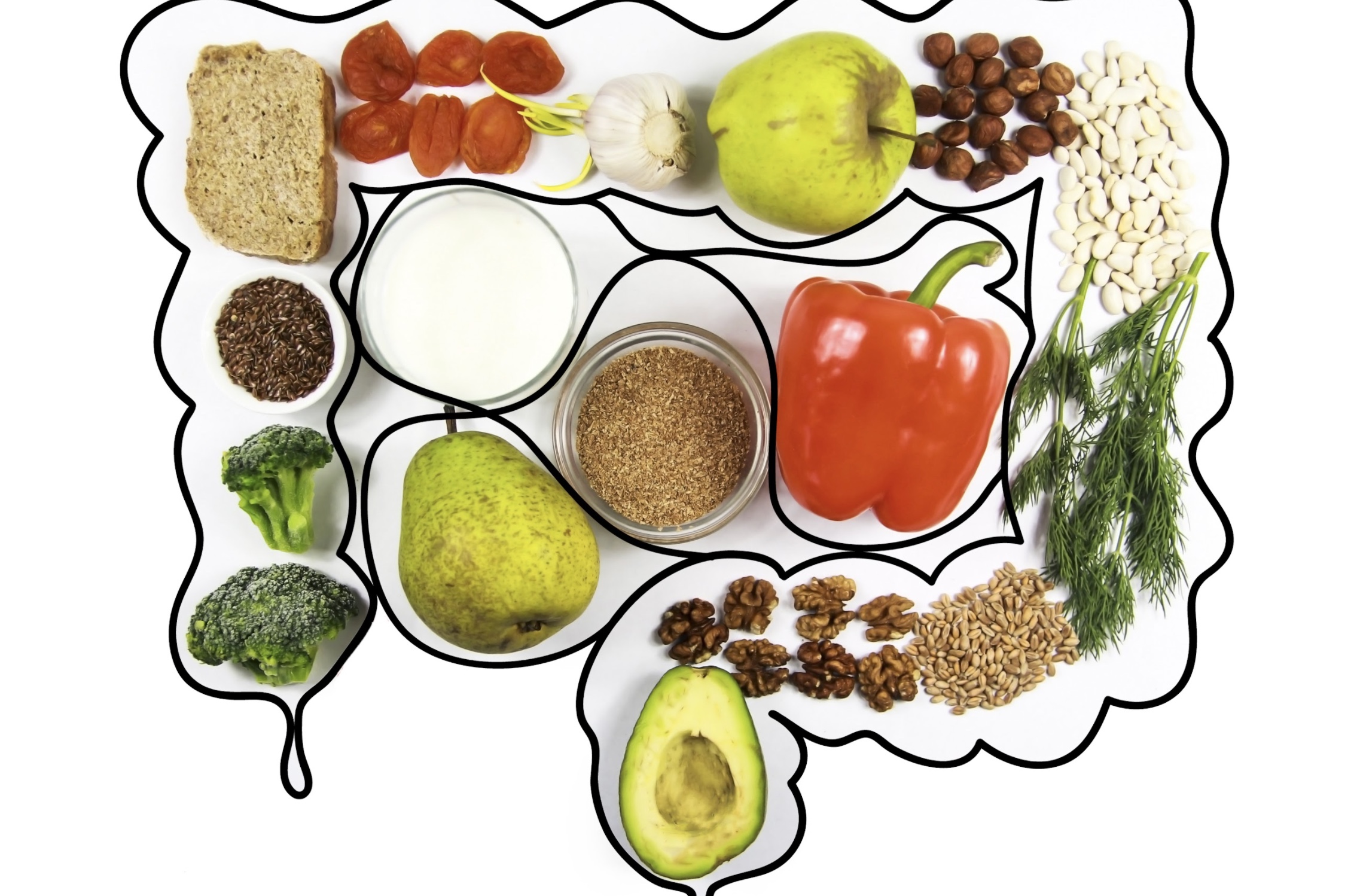Your gut plays a crucial role in your overall health, and it can be the source of many fascinating and unexpected tidbits of human biology. For example, small intestines are very long that they can cover a 2800-square-foot tennis court once you spread them out.
The gut, or the gastrointestinal tract, transports food from the mouth to the stomach, converts it into stored energy and absorbable nutrients, and transports the waste out of the body. To do that, the gut uses hormones, nerves, and bacteria. Although bacteria have a bad reputation, they’re essential as they form a mucosal layer, which could strengthen the gut wall. In fact, good gut health can be achieved if there’s a proper balance of good and bad bacteria in the digestive system. Below are other things you should know about your gut.
Chapter Overview
1. Your Gut May Influence Other Aspects Of Your Health
People may have experienced bloating, upset stomach, loose stool, diarrhea, stomach virus, or cramping at some point. But some may experience such symptoms regularly, which isn’t normal.
If you’re one of them, consult your doctor about what’s going on inside your body. The reason behind it is those symptoms can indicate health conditions, such as Crohn’s disease, irritable bowel syndrome, allergies, and other chronic diseases.
Your gut may also influence dry skin conditions, the physical appearance of your body parts, and allergies to certain plants and food. When this happens, it can compromise your immune system or affect the development of other age-related conditions.
Luckily, there are various health solutions you can consider to keep your gut working properly. To know more about this, click here and you’d learn about the real cause of your health condition and find the right solution suited for your unique health needs.
2. Prebiotics Are Better For Your Gut
Your gut contains countless beneficial bacteria, and taking probiotic supplements won’t give them a boost. It’s because such bacteria are mostly in the bowel or large intestines. The probiotic supplements don’t survive the acid.
If you’d like to boost your bowel’s bacteria, you may take fiber supplements or eat a fiber-rich diet. Fiber is a prebiotic that the bacteria may convert to healthy chemicals, which are good for nourishment and for preventing colon cancer.
3. Your Nutrition Choices Can Keep Your Gut Healthy
Most gut problems are due to the growth of bad bacteria or inflammation. Such issues can be resolved by changing the types of food you consume. Food containing unhealthy fats, processed carbohydrates, and sodium may let harmful bacteria thrive in your gut. On the other hand, food high in protein, antioxidants, fiber, and healthy carbohydrates could help keep gut issues at bay and allow the good bacteria to thrive.
To improve your gut health, you may include the following food in your diet:
- Bacteria-filled or fermented food like yogurt and kombucha
- Healthy carbohydrates, including sweet potatoes, wheat pasta, and brown rice
- Lean proteins and meat, like chicken and fish
- Green leafy vegetables, like kale and spinach
4. Your Gut Plays A Bigger Role In Your Wellness
What many people don’t realize is the gut plays a bigger role in terms of wellness. The gut is a microbiome, and different parts of it contain a variety of microorganisms, like fungi and bacteria. Such microbes may be bad or good for your health.
Balancing the amount of unhealthy and healthy microbes in your gut may be the best way to nourish your body. That’s why it’s crucial to know what types of food are the most damaging and beneficial to your health.
5. Your Gut Serves As Your Second Brain
There’s a reason why your stomach may feel like it’s tingling when you’re anxious or nervous. Your enteric nervous system, a sophisticated and complex network containing millions of nerve endings, connects your brain and gut. For this reason, changes in the microbiome may result in mood disorders, such as anxiety and depression.
6. Self-Care May Help You Avoid Gut Health Issues
Typically, various self-care activities are a great way to unwind from your busy life and let yourself focus on your health. Some of the activities that can boost your gut health include the following:
- Managing depression and anxiety conditions with different forms of medicine or therapy
- Practicing mindful behaviors, like artistic expression and meditation
- Eating and savoring food slowly
- Drinking more water
- Getting enough sleep
If you follow all of these activities, your gut would certainly thank you. Moreover, you’d experience the benefits of having a healthy gut, such as clearer skin, an improved immune system, and an enhanced mood.
7. Exercise May Influence Your Gut Health
Exercise may impact all aspects of your health, like your gut. As a matter of fact, regular exercise could make nutrient distribution and digestion more efficient. It may also help lessen the number of bad microbes and toxins in your body while balancing out the healthy microbes. In addition, exercising regularly could prepare your body and gut to deal with environmental stressors in a healthy way.
Why Is Your Gut Health Important?
To achieve optimum overall health, you need to have a healthy gut. Home to countless bacteria, the gut is responsible for the body’s critical functions. The bacteria in your gut aren’t always a bad thing as they play a key role in your health and metabolism.
The bacteria feed on your dietary fiber while doing different duties, like breaking down the dietary fiber and making vitamins K and B. This breakdown leads to a release of anti-inflammatory and beneficial fatty acids, which are crucial energy sources for the body. Good bacteria also get rid of the bad bacteria and replace them with beneficial bacteria. For nourishment, optimal immunity, and detoxification, your gut has to be in balance.

What Are The Signs Of Gut Health Issues?
It’s easy to tell when your gut is not healthy. More often than not, you’d likely experience stomach pain, gas, bloating, nausea, and diarrhea. Such imbalances are easy to fix. However, if they become chronic problems, they might need medical attention. A gastroenterologist may test you for certain conditions associated with the microbiome, like overgrowth of particular bacteria.
For those who are curious regarding their microbiome, you can use commercial testing kits that can analyze a stool sample and give information regarding the detected strains of bacteria. However, it’s best to consult your doctor to get more information about your gut health.
Ways To Keep Your Gut Healthy
If you have good gut health, you won’t experience lapses in immunity and damaging inflammation. To maintain a healthy gut, below are some of the things you should remember.
- Eat The Right Food
A healthy balanced diet rich in fruit and vegetables provides the fiber that creates good bacteria and improves gut health. Some food and beverages that build a healthy gut include kimchi, kefir, pickled ginger, and fermented drinks. For health issues like bloating and constipation, don’t hesitate to ask for tips from your healthcare professional regarding the best food for your gut health.
- Reduce Your Stress Levels
High stress levels could harm your entire body, including your digestive system. To lessen your stress levels, spend more time with people who make you happy, try meditation, get a massage, decrease your caffeine intake, and diffuse essential oils.
- Stay Hydrated
To have a balance of good bacteria in your gut, it’s essential to drink plenty of water. It also has a beneficial effect on your intestine’s mucosal lining. If possible, drink at least eight glasses of water every day to stay hydrated.
- Know Your Food Intolerances
If you’re experiencing nausea, rashes, diarrhea, abdominal pain, cramping, acid reflux, fatigue, and bloating, you may have a food intolerance. In this case, you might want to get rid of the food that triggers such symptoms. If you don’t know the food that contributes to your symptoms, change your eating habits to get the best possible results in keeping your gut healthy.
- Get More Sleep
Sleep provides the body an opportunity to work on recovery and repair. The relationship between gut health and sleep goes both ways. While unhealthy gut microbiomes may result in sleep problems, your circadian rhythms and sleep may also impact the diversity and health of your flora.
Not getting enough sleep won’t only compromise your microbiome, but it may also negatively affect your gut health. Misaligned circadian rhythms and disrupted sleep may also result in metabolic disorders and obesity.
The best way to avoid this is to create a sleep schedule or nighttime routine and sleep at least eight hours every night. To help you fall asleep quickly and enjoy a good night’s sleep, make sure to do the following:
- Avoid alcohol, sugary foods, and caffeine
- Reduce your blue-light exposure during nighttime
- Opt for more relaxing activities, like journaling or reading, before bed
Bottom Line
Keeping your gut healthy can make a huge difference in maintaining optimum health. With the above information, you probably now know how your gut works and why you should pay attention to it. Fortunately, there are many ways to improve your gut health. If you don’t know where to get started, schedule an appointment with your doctor to acquire more information about your gut.

